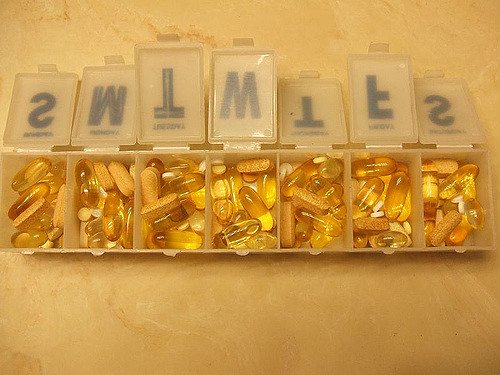Vitamin E is a vital antioxidant that can prevent free radical damage to specific fats in the body, naturally slowing down the aging process. As an important fat-soluble vitamin, Vitamin E plays an essential role in the proper functioning of the body’s organs, the activity of enzymes and numerous neurological processes.
Choosing to eat more foods rich in Vitamin E is ideal as they can help to treat and prevent diseases of the heart and blood vessels. Vitamin E is found in abundance in fruits, nuts, seeds, grains, oils and wheat germ, along with being widely available as a supplement.
Here are several of the best reasons to include more Vitamin E in your diet…
1. Improves Vision
Vitamin E may help with decreasing the risk of Age-Related Macular Degeneration (ARMD) that can lead to blindness. Vitamin E is good for supporting vision, with high doses being shown to support the healing process of people undergoing laser eye surgery.
2. Fights Free Radical Damage and Prevents Disease
Vitamin E has potent antioxidant properties that can reduce free radical damage, fight inflammation and therefore naturally slow down the aging process of cells, potentially fighting off health problems like heart disease. Free radicals fight and break down healthy cells in the body, therefore leading to cancer and heart disease.
Reduced free radical levels and slow aging of cells significantly increase the body’s immunity, therefore preventing common illnesses and health conditions from forming. Recent research has also suggested that the antioxidants and immune enhancing effects of isomers alpha-tocotrienol, gamma-tocotrienol and even delta-tocotrienol all seem the most effective at reducing free radicals.
3. Balances Hormones
Vitamin E can help to naturally balance hormones, playing a vital role in balancing the endocrine and nervous systems. Hormonal imbalances can lead to symptoms such as allergies, anxiety, fatigue, PMS, urinary tract infections, skin changes and weight gain. When hormones are balanced, it’s easy to maintain a healthy weight, menstrual cycle and to naturally feel energetic.
4. Helps People with Alzheimer’s Disease
Tocotrienols found in Vitamin E contain anti-inflammatory activity that research shows can provide protection against Alzheimer’s disease. Memory loss and functional decline is slowed down in people with moderately severe Alzheimer’s disease or other kinds of neurodegenerative disorders. When Vitamin E is taken in combination with Vitamin C, this can decrease the risk of risk of several forms of dementia developing.
*85. Repairs Damaged Skin**
Vitamin E acts as an anti-aging nutrient in the body by strengthening capillary walls and improving their moisture and elasticity. Studies support the idea that Vitamin E can reduce inflammation and help to maintain healthy, youthful skin. Its antioxidant properties can also provide protection against cigarette smoke and UV rays from sunlight, therefore protecting against skin cancer.
6. May Lower Cancer Risk and Improve Effectiveness of Medical Treatments
As Vitamin C is a powerful antioxidant that can fight free radical damage in the body, it’s often used to protect against any harmful effects of medical treatments, relating to dialysis for cancer or radiation. This can reduce unwanted side effects from drugs that may result in hair loss or lung damage.
Vitamin E has also been linked with cancer prevention and animal studies have found that it can suppress tumor growth using oral doses of tocotrienols. Cancer cell death or inhibiting the abnormal growth of blood vessels inside a tumor are thought to be caused by tocotrienols.
7. Essential For Pregnancy Growth and Development
Vitamin E is essential for healthy pregnancy and for young fetuses, infants, the elderly or those who may become pregnant. The recommended daily amount of Vitamin E is 15 milligrams per day (22.5IU) for adults.
Vitamin E plays an essential role in brain and neurological development and this can only happen during a specific period – the 1000 day window that begins at conception.
Good Sources of Vitamin E
Highly recommended sources of Vitamin E include almonds (218% Vitamin E), avocado (2.68 mg, 18%), sunflower seeds (33.41mg, 220%) and butternut squash (2.64mg, 17%). Other great sources include hazelnuts, broccoli, spinach and tomato. Choosing a good Vitamin E supplement is also highly recommended if you can’t access these foods regularly.
Read original article here: SOURCE








